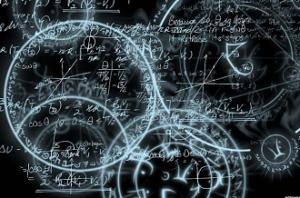
From information to narration
The title is purposefully the opposite of the first chapter of Byung Chul Han’s book on the crisis of narration, although he quotes Walter Benjamin who cites the experience of narration in a period before the internet, but the Korean-German philosopher does not clearly see this previous crisis the internet, and thus he himself falls into what he condemns, the absence of analysis in time.
chapter of Byung Chul Han’s book on the crisis of narration, although he quotes Walter Benjamin who cites the experience of narration in a period before the internet, but the Korean-German philosopher does not clearly see this previous crisis the internet, and thus he himself falls into what he condemns, the absence of analysis in time.
If it is true that the Internet and its tool for making information available to laypeople, which is the Web (born in the 90s, more than 20 years after the internet) not only created a profusion of means of disseminating information and its narratives, but also created the possibility of its profusion in audio and video, which gives rise to a new possibility of recorded narration for podcasts and videos.
Of course, this does not mean that that primitive narrative prior to writing and the press, typical of primary orality, has returned, it exists in original cultures and also in some Western cultures and beliefs, for example, among the Kurds there are the “çîrokbê” who, if it were Literally translated, it would be what we understand in Western culture as “history”.
Byung Chul Han’s sentence about the digital universe is clear: “Digitalization deobjectifies and disembodies the world. It also eliminates memories” (Han, 2022) this is partly true, but digital media itself, once recorded, becomes a thing, and once a narration is made, just for example, by Kurdish narrators, the information (in the sense of Chul Han) returns to narration, that is, the reverse process is possible.
Its error, from a philosophical point of view, is an old question about what things are (or what they are), the relationship between subject and object is the result of Western dualism since Parmenides, and only a non-dual vision can understand that the A thing is also not a thing in itself, once narrated.
Thus, information will always be paradoxical, it is narrated when it is and not narrated after it has become narrated-information and is subject to historical distance, but if seen from the point of view of quantum physics it is even more complex, because there are both things, from which the question arises from some physicists that time does not exist, difficult for today’s culture.
This question of time arose in 2012 in a TedTalk by the Italian Carlo Roveli: “Time Doesn’t Exist and I’ll Tell You That in 15 Minutes”, but has gained popularity now because the James Webb mega-telescope proposes several new paradigms when looking deeper into the universe, We are at the end of the Copernican era, the center of our galaxy is a black hole and they have already started to say what they are, dark matter and dark energy are also beginning to be revealed.
The theoretical physicist Michio Kaku gives the history of this idea, “In The God Equation” (ed. Record, 224 pp, trans.: Alexandre Cherman), and there he gives a written account of today’s physics.
Han, Byung-Chul (2022). Não-coisas : reviravoltas do mundo da vida / Byung-Chul Han ; tradução de Rafael Rodrigues Garcia. – Petrópolis, RJ : Vozes, Brazil.









